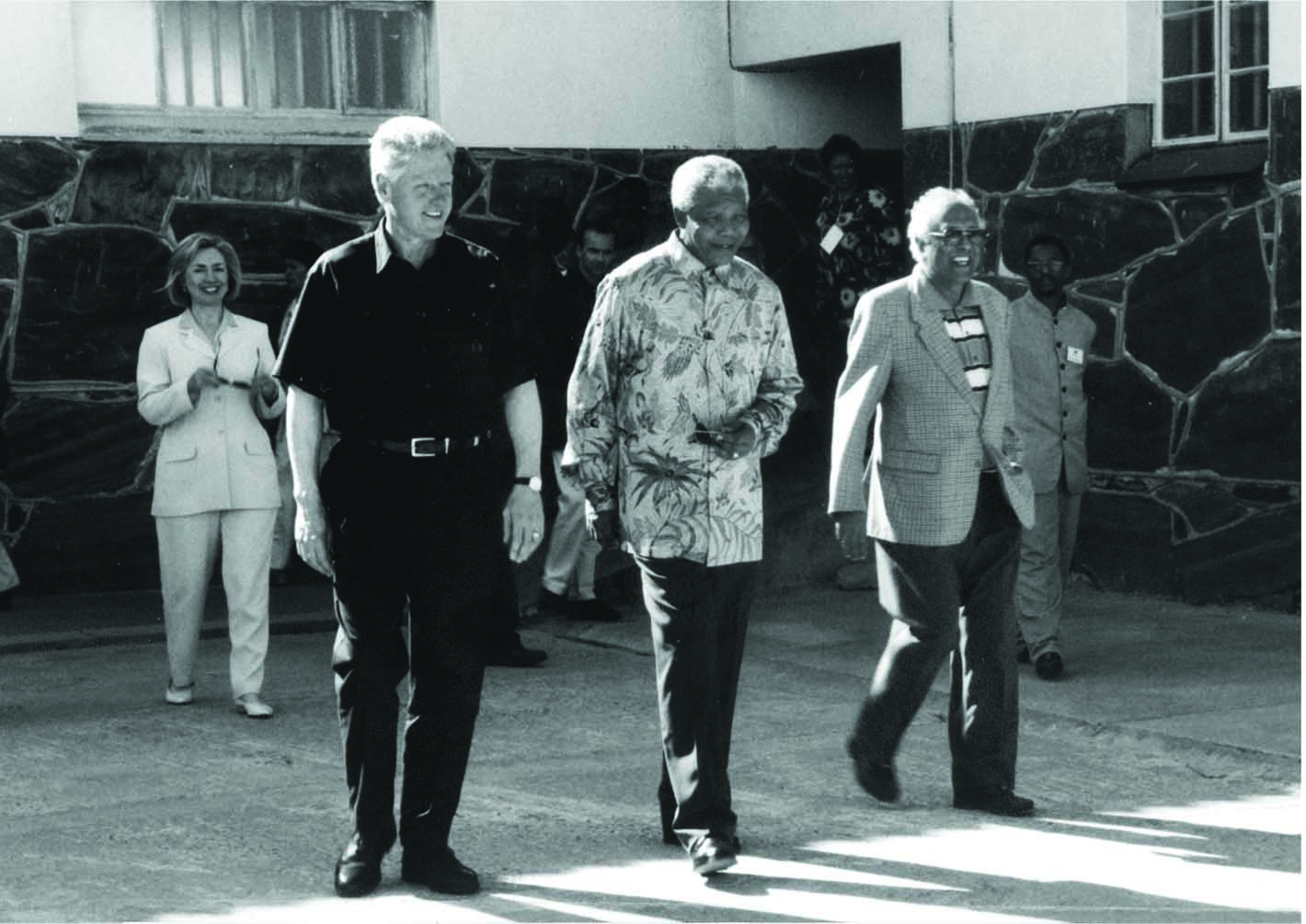From Scott Feinberg’s Hollywood Reporter Q&A with Ahmed Kathrada, Robben Island prisonmate of Nelson Mandela for 26 years and friend and fellow anti-Apartheid activist for decades longer:
“Question:
Wasn’t it when the Indian Congress and the African National Congress first started interacting that you first met Nelson Mandela?
Ahmed Kathrada:
Yes. I was already in the Indian Youth Congress at the time. I met him through his university colleagues, who were Indians whom I knew. He used to frequent their place and that is where I met him in 1946, 68 years ago.
Question:
What were your first impressions of him?
Ahmed Kathrada:
My abiding impression of him, which lasted all my life, was his ability to relate to me as an equal, so much so that the questions he asked me made me feel so comfortable that I could go back to school and boast to my friends that I met a university student who treated me the way he did. That is how I remembered him all my life. He had an ability to treat everybody as equals.
Question:
Is it true, though, that when you two first met, you initially sort of challenged him a little bit? You wanted to debate him, didn’t you?
Ahmed Kathrada:
Yes. That was the one and the only argument we had. I’m 11 years his junior and it was on a question of a strike that was jointly organized by the Indian Congress, the Communist Party and the ANC. He belonged to the ANC Youth League, and the Youth League was not racist but it was against cooperation with the Communist Party or with other liberation organizations. We met on a street and got into an argument where foolishly, at my young age, I challenged him to a debate, and that led to a little argument. But that was all history and we teased each other all the years on Robben Island because the strike which they opposed was successful, but unfortunately eighty people were killed in that strike. And, of course, that led to a closer relationship between Mr. Mandela, the ANC Youth League and the other organizations. That was the genesis, I would say, of the Youth League changing its views from non-cooperation with other organizations to one of cooperation.”

